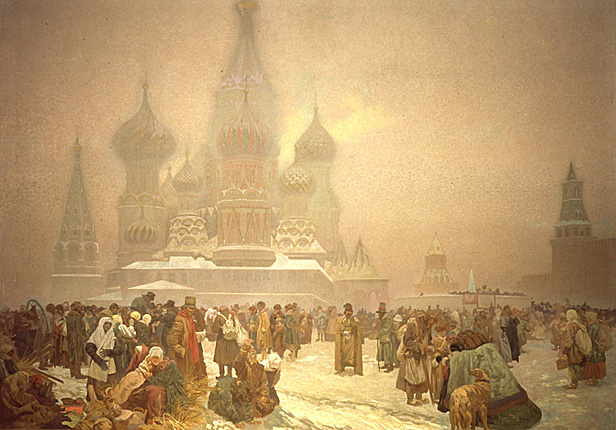By the end of the 16th century the Russian peasant came under the complete control of the landowner and during the middle of the 17th century serfdom became hereditary. Their situation became comparable to that of slaves and they could be sold to another landowner in families or singly.
By the 19th century it was estimated that about 50 per cent of the 40,000,000 Russian peasants were serfs. Most of these were the property of the nobility but large numbers were owned by the Tsar and religious foundations.
The Crimean War made Alexander II realize that Russia was no longer a great military power. His advisers argued that Russia's serf-based economy could no longer compete with industrialized nations such as Britain and France.
Alexander now began to consider the possibility of bringing an end to serfdom in Russia. The nobility objected to this move but as Alexander told a group of Moscow nobles: "It is better to abolish serfdom from above than to wait for the time when it will begin to abolish itself from below.
In 1861 Alexander issued his Emancipation Manifesto that proposed 17 legislative acts that would free the serfs in Russia. Alexander announced that personal serfdom would be abolished and all peasants would be able to buy land from their landlords. The State would advance the the money to the landlords and would recover it from the peasants in 49 annual sums known as redemption payments.
Serfdom was common all throughout Eastern Europe during this time period but Russia was the last country to abolish serfdom.

